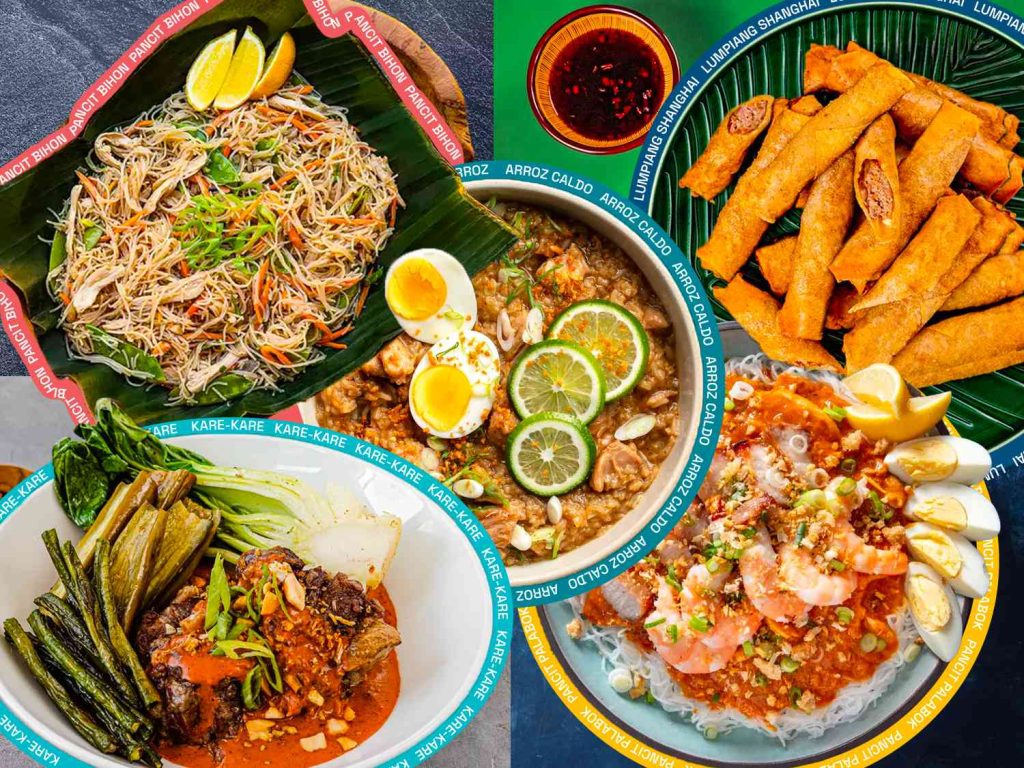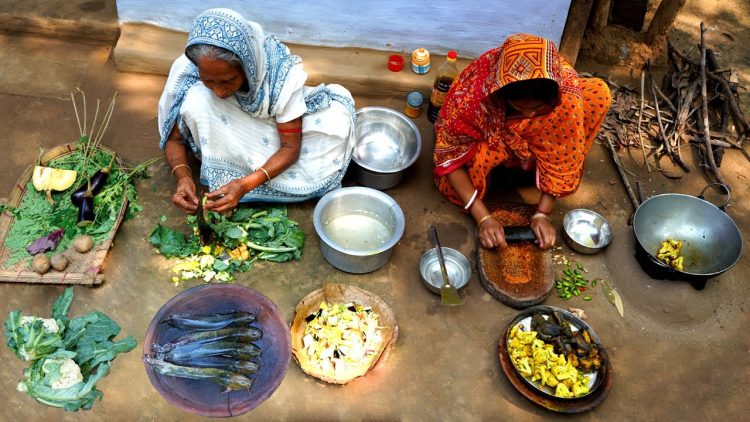Food is more than sustenance. It’s culture, identity, memory, and celebration. Across the globe, food traditions are passed down from one generation to the next—recipes that tell stories of migration, resilience, love, and belonging. But in an era where rising rates of chronic disease intersect with changing food environments, traditional diets are increasingly under pressure. Fast food, processed ingredients, and the demands of modern life have often pushed communities away from ancestral eating habits toward more convenient, but less nutritious, alternatives. This shift has sparked concern among health professionals, cultural advocates, and food lovers alike. The good news is that many traditional foodways already embody principles of balanced nutrition, sustainability, and holistic health. Rather than being replaced, they can be revitalized—adapted to modern needs without losing their cultural essence. In this article, we explore how communities are reimagining traditional cuisines to support better health outcomes while preserving their culinary heritage.
Rediscovering the Health Wisdom in Traditional Diets
Many of the world’s most celebrated traditional diets, such as the Mediterranean, Okinawan, Ethiopian, or Indigenous North American cuisines, are naturally aligned with today’s nutritional guidelines. These food cultures often emphasize whole grains, legumes, seasonal vegetables, fermented foods, plant-based proteins, and moderate portions of animal products. They prioritize preparation methods that enhance flavor and nutrient absorption, such as slow cooking, stewing, fermenting, and using spices for both taste and medicinal benefits. In contrast, modern ultra-processed diets—characterized by excess sugar, sodium, saturated fats, and refined carbohydrates—have been linked to obesity, type 2 diabetes, heart disease, and certain cancers. As globalization and urbanization have changed how people eat, many traditional diets have been eroded or distorted. White rice may now be eaten without fiber-rich vegetables. Fried versions of ancestral dishes may be consumed more frequently than in the past. Street foods once enjoyed occasionally are now everyday meals. This nutritional transition has led to a double burden of malnutrition, especially in developing countries, where obesity and diet-related disease exist alongside undernutrition.
Modernizing Without Erasing: A Balance of Taste and Health
Adapting traditional cuisines to support modern health is not about rejection or “fixing” culture—it’s about revival and innovation. For example, in South Asian cuisine, dishes such as dal (lentil stew), sabzi (vegetable dishes), and roti (flatbread) offer excellent sources of plant protein and fiber. However, adaptations can include reducing the use of ghee and cream, replacing refined flours with whole grain alternatives, and using less salt or sugar without sacrificing flavor. In Latin American communities, popular foods like tamales, arepas, or pupusas can be made with less lard and more vegetables or legumes. Instead of soda, naturally flavored waters or herbal teas can complement the meal. Similarly, African cuisines, which often include nutrient-dense staples like millet, sorghum, yams, leafy greens, and beans, are now being celebrated in modern wellness circles for their inherent nutritional value. Revitalizing these foodways is about putting them in the spotlight—at home, in schools, in health clinics, and in the media. Rather than pushing one-size-fits-all dietary guidelines, nutrition efforts must embrace cultural specificity and offer respectful guidance on how small changes can lead to big health gains.
Nutrition Education That Respects Culture
One of the keys to successfully adapting traditional cuisines lies in culturally sensitive nutrition education. Too often, public health campaigns promote a narrow idea of “healthy eating” based on Western norms—lean meats, low-fat dairy, and bland steamed vegetables. This approach can alienate people and reinforce the myth that healthful eating means giving up cultural favorites. Instead, nutrition programs should start with what people already know and love. Educators can highlight the inherent strengths in traditional foodways and collaborate with community leaders to teach practical adaptations. Cooking classes might show how to make beloved dishes with less oil, how to substitute brown rice or whole wheat flour, or how to include more vegetables without losing the soul of the dish. Community gardens and farm-to-table programs can reintroduce native ingredients that may have fallen out of use. For example, Indigenous American communities are reviving ancestral crops like the “Three Sisters” (corn, beans, and squash), while Filipino wellness chefs are promoting the use of malunggay (moringa) and ube (purple yam) as superfoods. It’s also essential that dietitians and healthcare providers receive training in cultural competence, so they can advise patients in ways that are affirming, inclusive, and effective.

The Role of Youth in Cultural Food Preservation
Younger generations often feel the tension between maintaining cultural identity and fitting into mainstream society. Many grow up eating traditional meals at home while consuming fast food or cafeteria fare outside. The result can be a weakening of connection to ancestral foodways. However, youth can also be powerful agents of cultural preservation and innovation. Across the globe, young chefs, influencers, and activists are reclaiming traditional food as a source of pride. They are hosting pop-up dinners, documenting family recipes on TikTok and YouTube, starting food blogs, and launching businesses that celebrate cultural heritage with a health-conscious twist. These efforts blend storytelling with nutrition, reminding young people that food is not just about what’s on the plate, but about who they are. Schools can play a critical role by incorporating culturally diverse foods into lunch programs, involving students in meal planning, and using curriculum that teaches the history and health benefits of traditional ingredients. Food literacy—knowing how food is grown, prepared, and used in rituals—builds confidence and connection.
Culinary Adaptation in the Diaspora
Immigrant and diaspora communities often face unique challenges in maintaining traditional diets. Access to familiar ingredients can be limited, and economic pressures may push families toward cheaper, processed options. Additionally, there is often pressure to assimilate, making traditional foods feel outdated or “unhealthy” compared to mainstream fare. But adaptation doesn’t have to mean loss. It can mean translation—finding new ways to honor old traditions. Korean-American families might use brown rice instead of white in bibimbap. Nigerian families in the UK might replace palm oil with canola and add kale to egusi soup. Jamaican Canadians might bake instead of fry plantains. These changes are not betrayals of heritage—they are evolutions that allow cultural food to thrive in new contexts. Cookbooks, online communities, and intergenerational dialogue help keep traditions alive while allowing for creativity. Elders passing down techniques to younger family members often welcome these health tweaks once they see the benefits.
Healing Through Cultural Food
Food traditions can also support emotional, spiritual, and communal well-being. In many cultures, food is medicine—not just in the literal nutritional sense, but in how it brings people together, marks life events, and provides comfort. The act of preparing and sharing a traditional meal can be healing, especially for communities that have experienced trauma, migration, or marginalization. Cultural food justice movements have emerged that connect food with identity, land, and sovereignty. Indigenous-led food programs in North America, Maori food sovereignty initiatives in New Zealand, and Afro-Caribbean herbal traditions in the diaspora are examples of how traditional foodways can be reclaimed as tools of empowerment and resilience. Mental health practitioners increasingly recognize the role of culturally meaningful food in therapy, addiction recovery, and social reintegration. In hospitals and eldercare facilities, offering traditional meals can improve appetite, emotional well-being, and cultural dignity. For refugees and displaced persons, access to familiar food provides a critical sense of stability and belonging.
Public Health Policy and Food System Support
Efforts to adapt and preserve traditional cuisines cannot rely solely on individuals. Systemic support is needed to ensure that communities can access the ingredients, knowledge, and infrastructure necessary for healthy cultural eating. Governments and non-profits can fund programs that connect local farmers with cultural markets, protect indigenous food biodiversity, and support small food businesses that promote traditional cuisine. Urban planning can prioritize community kitchens, multicultural food hubs, and green spaces for growing heritage crops. Public health guidelines should include cultural flexibility, allowing for multiple expressions of balanced eating rather than rigid templates. Labeling systems can be designed to accommodate traditional packaged foods without penalizing them for deviations from Western norms. For example, fermented foods or natural oils used in certain cuisines may be beneficial despite not fitting neatly into current regulatory categories. In global development work, food aid programs are increasingly adapting to local food cultures rather than imposing standardized diets. This not only improves compliance and health outcomes but also affirms local identity and pride.
Technology as a Bridge for Culinary Tradition
Digital platforms are playing a crucial role in the preservation and evolution of cultural foodways. From virtual cooking classes to recipe-sharing apps, technology allows communities to document, adapt, and celebrate their culinary heritage in real-time. Crowdsourced databases of traditional recipes, mobile apps that suggest healthy substitutions, and AI-powered nutrition tracking that recognizes ethnic foods are all helping to modernize tradition without erasing it. Additionally, social media influencers are challenging stereotypes by presenting cultural food as both trendy and healthy. This visibility helps dismantle the myth that health and culture are in conflict.
Conclusion: A Shared Table, A Healthy Future
Preserving cultural food traditions while promoting community health is not only possible—it’s essential. Traditional cuisines offer a treasure trove of nutritional wisdom, communal connection, and cultural pride. By thoughtfully adapting these foodways to today’s health challenges, we can build more inclusive, resilient, and empowered food systems. Whether it’s a grandmother teaching her grandchild how to make dumplings with whole-grain wrappers, a chef crafting Afro-vegan soul food, or a nutritionist co-developing a diabetes-friendly version of jollof rice with community members, these stories reveal a universal truth: food is identity, and health is heritage. When we honor both, we don’t have to choose between them. We create a shared table where everyone belongs and thrives.

















































